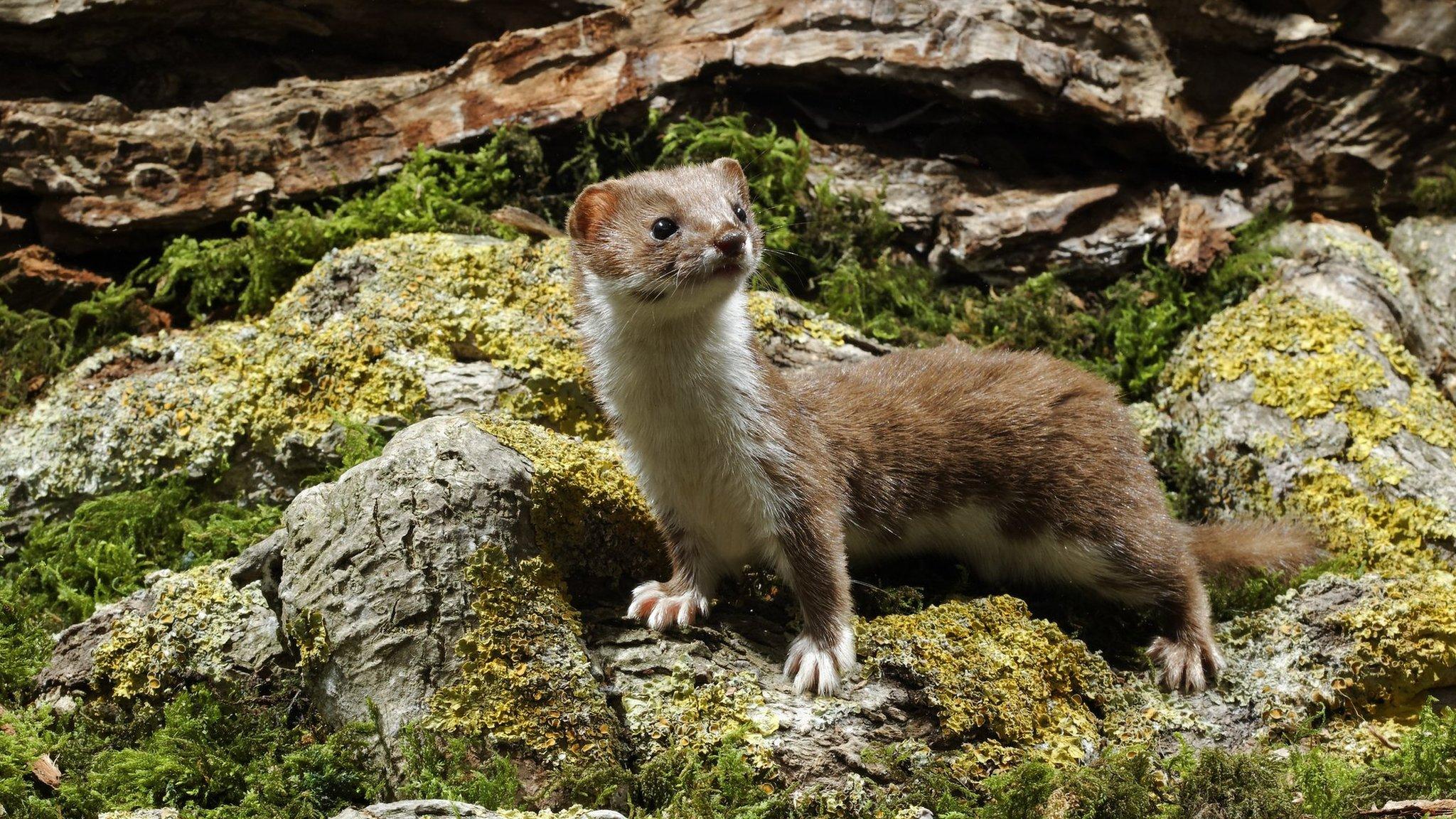Weasels: Experts warn species could be at risk of extinction in UK
- Published
- comments

The number of weasels in the UK has halved over the past 50 years
The population of weasels across the UK has fallen dramatically, a new study has shown.
Experts say that the numbers have halved over the past 50 years and that legal protection is needed in order to save them from extinction.
The findings are parts of a wider study that shows there's been a worrying fall in the numbers of more than 70% of small mammals in the UK.
But there is good news too, with the population of certain species such as deer and bats on the increase.
The yellow-necked mouse has seen its numbers increase in the UK
What did experts find?
In the first study of its kind, researchers at Sussex University, the Mammal Society and the Centre for Ecology & Hydrology looked at population numbers of nearly 40 different small mammals over the past 50 years.
They found that the two species worst affected by a decrease in numbers were the weasel, followed by the harvest mouse.
Researchers say that other species have also shown a fall in population numbers.
There is also now 'high concern' over other small mammals such as stoats, voles and shrews, which were previously thought not to be at risk in the UK.
Weasels are the UK's smallest carnivores - and they can live in lots of different habitats including woodland, grassland, and moorland.
However, experts also found that certain other animals including several species of bat and deer have seen their numbers increase over the past 50 years.
Other animals including the red fox and brown hare have seen no overall change to their numbers.
There has been no overall change in population numbers for some species in the UK such as for these fallow deer
Fiona Mathews from the University of Sussex said that small mammals are important to ecosystems and that habitat destruction was one of the reasons behind the fall in numbers. "The disappearance of the long grass and overgrown areas they need has taken its toll."
Dr Stephanie Wray, Chair of the Mammal Society, added that action is needed immediately. "We need to act now to stop ecosystem collapse" she said.
- Published5 November 2021
- Published21 May 2021
- Published6 September 2020
